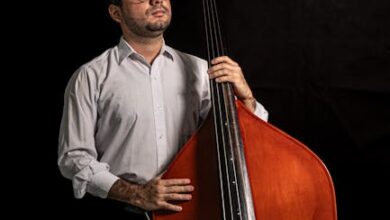The Crucible of El Clásico: When Emotions Boil Over

The beautiful game, they call it. And most of the time, it truly is. But sometimes, especially when two titans collide with history, pride, and global bragging rights on the line, it can transform into something far more visceral, a raw, unfiltered spectacle of human emotion. Few fixtures encapsulate this duality quite like El Clásico, the epic showdown between Real Madrid and Barcelona.
Recently, another chapter was added to this storied rivalry, a match that, by all accounts, descended into chaos before Los Blancos ultimately secured a vital victory. In the thick of that maelstrom, one figure often finds himself at the heart of the storm: Vinicius Junior. A player of electrifying talent, Vini Jr. is also known for his passionate, sometimes fiery, on-field demeanor. It was during this intense encounter that a scuffle erupted, momentarily overshadowing the football itself.
What followed, however, offered a moment of unexpected clarity and maturity: Vinicius Junior offered an apology for causing any offence with his actions. In a world where public figures often shy away from admitting fault, especially in the high-octane environment of elite sports, this gesture is worth a closer look. What does it tell us about the player, the game, and the evolving nature of professionalism?
The Crucible of El Clásico: When Emotions Boil Over
To truly understand the context of Vinicius Junior’s apology, we first need to appreciate the unique pressure cooker that is El Clásico. This isn’t just any football match; it’s a cultural phenomenon, a deeply ingrained rivalry that transcends sport. Millions around the world tune in, not just for the dazzling skill, but for the sheer narrative of it all – the clash of philosophies, the individual battles, the historical weight.
From the moment the whistle blows, the tension is palpable. Every tackle, every dribble, every missed pass is amplified. Players are not just competing against each other; they’re carrying the hopes and expectations of entire fan bases, sometimes even political ideologies. It’s a cauldron where even the most seasoned professionals can find their emotions running high, their instincts taking over in the heat of the moment.
When you add in the background fact that the “match descended into chaos,” it paints a vivid picture. This wasn’t a serene Sunday kickabout; it was a gladiatorial contest, a test of wills where the line between fierce competition and outright confrontation can become blurred. In such an environment, an on-field scuffle, while never ideal, becomes almost an inevitable by-product of the immense stakes and raw human passion on display. It’s a reminder that beneath the perfectly manicured pitches and multi-million-pound contracts, these are still human beings operating under extraordinary stress.
Vinicius Junior’s Apology: A Sign of Growth and Self-Awareness
Given the intense atmosphere and the high-stakes nature of modern football, a public apology from a player involved in an on-field scuffle is, frankly, refreshing. For Vinicius Junior, a player still relatively young in his career, though already a global superstar, it speaks volumes about his personal development and growing self-awareness.
It’s easy to dismiss such incidents as ‘part of the game’ or to fall back on the defensive posturing often seen in professional sports. But Vini Jr.’s decision to acknowledge his role and express regret shows a maturity that transcends the immediate incident. It suggests he understands the broader implications of his actions, not just for himself but for his team, his club, and the millions who look up to him.
The Weight of the Shirt: Responsibility Beyond the Pitch
Modern athletes are more than just performers; they are brands, role models, and often, the public face of multi-billion-dollar organisations. Every action, every word, every gesture is scrutinised, analysed, and amplified across traditional and social media platforms. In this hyper-connected world, the responsibility of a player like Vinicius extends far beyond scoring goals or making assists.
An on-field scuffle, while perhaps minor in isolation, can quickly become a symbol, fuel narratives, and even influence perceptions of an entire team. By apologising, Vinicius isn’t just saying sorry for a momentary lapse; he’s acknowledging his responsibility to uphold a certain standard of conduct. He’s demonstrating an understanding that his actions carry weight, and that maintaining sportsmanship, even in the most intense moments, is part of the job description.
This isn’t about weakness; it’s about strength. It takes courage to admit you might have overstepped, especially when the world is watching. It’s a powerful lesson in accountability, not just for budding athletes but for anyone navigating a high-pressure professional environment. Reflecting on one’s actions, taking ownership, and striving for improvement are hallmarks of true professionalism.
Learning from the Chaos: The Evolving Face of Sportsmanship
The incident, and Vinicius’s subsequent apology, offers a valuable lens through which to view the evolving nature of sportsmanship and professionalism in elite sport. While the passion and fire of El Clásico are what make it so compelling, there’s also a growing expectation for players to maintain composure and respect, even in the face of provocation.
It’s a delicate balance. We want players to be passionate, to care deeply about the outcome. But we also want them to be role models, to demonstrate control and respect for opponents and officials. Moments like the scuffle serve as a stark reminder of the fine line between competitive fire and losing one’s head. And an apology like Vinicius’s shows a willingness to learn from those moments.
From Impulse to Reflection: A Growth Trajectory
Every athlete’s career is a journey of growth, both in skill and in character. For a player like Vinicius Junior, who operates under immense scrutiny from a very young age, these moments of reflection are crucial. They shape not just the player he becomes on the field, but the person he is off it.
The ability to step back, acknowledge a mistake, and publicly apologise speaks to an individual who is not just chasing trophies, but also striving for personal improvement. It’s a trait that resonates beyond the football pitch, reminding us all that true leadership often involves humility and the courage to admit when we’ve fallen short. In a world increasingly demanding authenticity, Vinicius Junior’s apology feels genuinely human.
In the whirlwind world of El Clásico, where every moment is magnified and every emotion laid bare, Vinicius Junior’s apology stands out. It’s a refreshing reminder that even in the most intense competitive environments, there’s room for reflection, growth, and humility. It shows that taking responsibility isn’t a sign of weakness, but a powerful indicator of strength and evolving professionalism. As the beautiful game continues to evolve, these gestures of sportsmanship become just as vital as the goals and the victories, shaping not only individual legacies but the very spirit of the sport itself.





